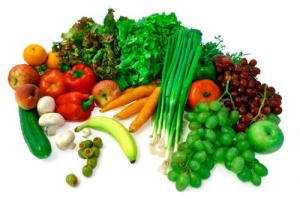World Food Prices Rise to Record on Sugar, Meat Costs
January 5, 2011
Bloomberg
World food prices rose to a record in December on higher sugar, grain and oilseed costs, the United Nations said, exceeding levels reached in 2008 that sparked deadly riots from Haiti to Egypt.
An index of 55 food commodities tracked by the Food and Agriculture Organization gained for a sixth month to 214.7 points, above the previous all-time high of 213.5 in June 2008, the Rome-based UN agency said in a monthly report. The gauges for sugar and meat prices advanced to records.
Sugar climbed for a third year in a row in 2010, and corn jumped the most in four years in Chicago. Food prices may rise more unless the world grain crop increases “significantly” in 2011, the FAO said Nov. 17. At least 13 people died last year in Mozambique in protests against plans to lift bread prices.
“There is still, unfortunately, the potential for grain prices to strengthen on the back of a lot of uncertainty,” Abdolreza Abbassian, senior economist at the FAO, said by phone from Rome today. “If anything goes wrong with the South American crop, there is plenty of room for them to increase.”
White, or refined, sugar traded at $752.70 a metric ton at 11:53 a.m. on NYSE Liffe in London, compared with $383.70 at the end of June 2008. Corn, which added 52 percent last year on the Chicago Board of Trade, was at $6.01 a bushel, down from $7.57 in June 2008. Soybeans were at $13.6325 a bushel, against $15.74 at the close of June 2008.
Demand From China
The cost of food climbed 25 percent from a year earlier in December, based on the FAO figures, after Chinese demand strengthened and Russia’s worst drought in a half-century devastated grain crops. The agency’s food-price indicator rose from 206 points in November.
Last month’s year-on-year rise compares with the 43 percent jump in food costs in June 2008. Record fuel prices, weather- related crop problems, increasing demand from the growing Indian and Chinese middle classes, and the push to grow corn for ethanol fuel all contributed to the crisis that year.
“In 2008 we had rapid increases in petroleum prices, fertilizer prices and other inputs,” Abbassian said. “So far, those increases have been rather constrained. It doesn’t really reduce the fear about what could be in store in the coming weeks or months.”
New York-traded crude was last at $88.44 a barrel, compared with $140 at the end of June 2008. Bulk urea pellets, used in fertilizer as a source of nitrogen, were at $320 a ton in the last week of December, against $460 in June 2008.
9.1 Billion People
Global food production will have to rise 70 percent by 2050 as the world population expands to 9.1 billion people from about 6.8 billion people in 2010, the FAO has said.
In response to the 2008 crisis, countries from India and Egypt to Vietnam and Indonesia banned exports of rice, a staple for half the world. Skyrocketing food prices sparked protests and riots in almost three dozen poor nations including Haiti, Somalia, Burkina Faso and Cameroon.
Sugar and oilseeds have a disproportionate effect on the FAO’s food index because it’s based on trade values for commodities, Abbassian said. The price of staples including rice is lower than in 2008, he said. Rough rice last traded at $13.90 per 100 pounds in Chicago, compared with $20.21 at the end of June 2008.
“If you want to see the index as a barometer of food crisis, I’m not so sure this is the right thing to do,” Abbassian said. “In the previous episode, really the main driver in food commodities was cereals. This time around, look at sugar and oilseeds.”
Grain Inventories
Compared with 2007-2008, many poor countries had “good or above-average” cereal harvests last year, the economist said. Production problems took place in grain-exporting countries, and “supply at hand should be adequate,” he said.
The FAO’s gauge for sugar prices reached 398.4 points last month, increasing from 373.4 in November. The meat-price index rose to 142.2 points from 141.5.
The agency’s cereal-price index jumped to 237.6 points in December, the highest level since August 2008, from 223.3 the previous month. The indicator for cooking oils advanced to 263 points, the highest since July 2008, from 243.3. The index for dairy prices rose to 208.4 points from 207.8.
Global grain output will have to rise at least 2 percent this year to meet demand in 2011-2012 and avoid further depletion of stocks, the UN agency has said.
The basis for the FAO index is 2002-04. The gauge includes commodity quotations that the agency considers representative for international food prices.
“The real uncertainty and problem is the 2011-2012 market,” Abbassian said. “We are at a very high level. If it’s further up than this, then you really begin to be concerned.”

